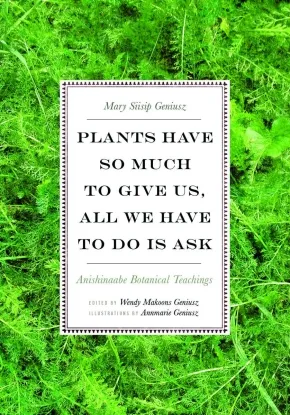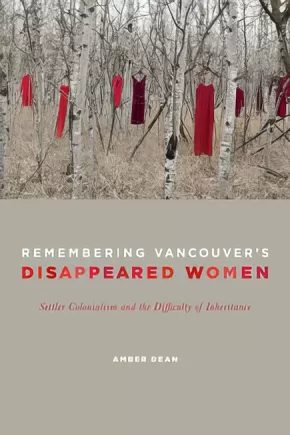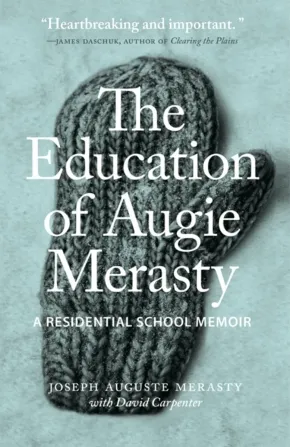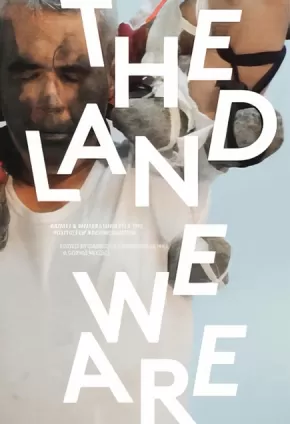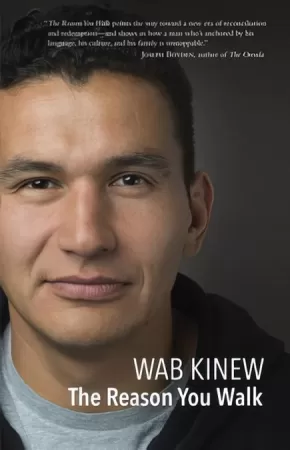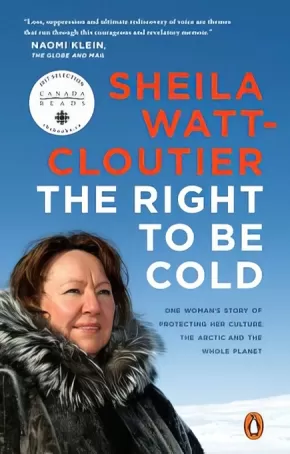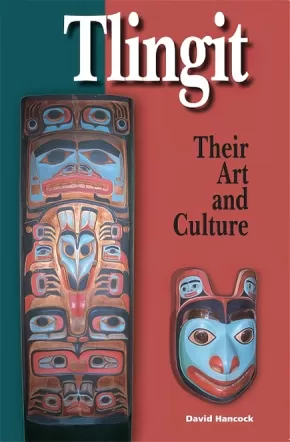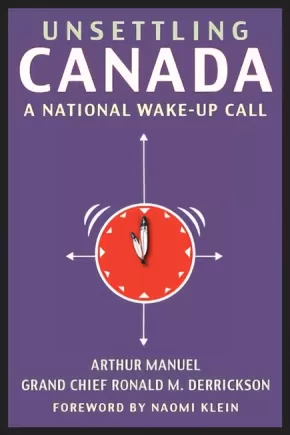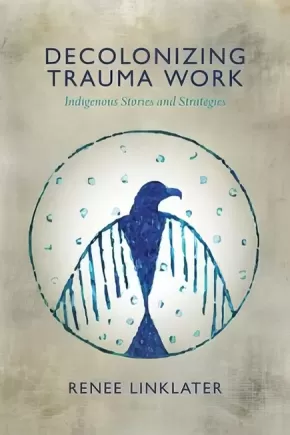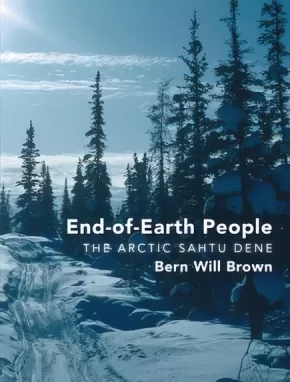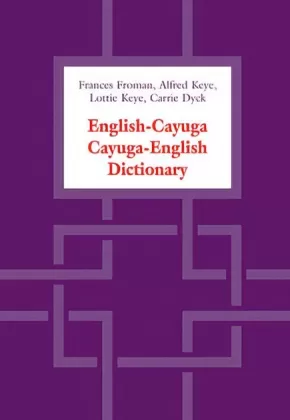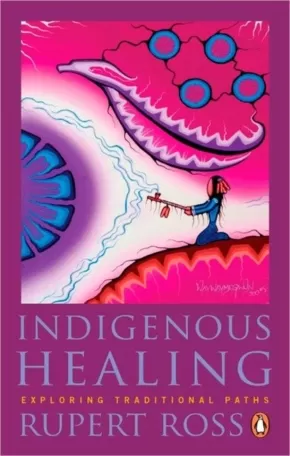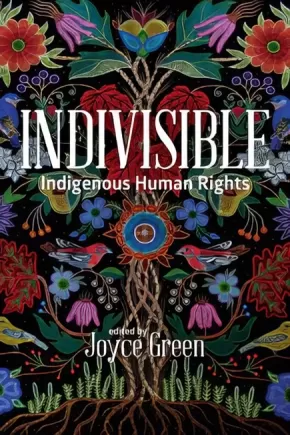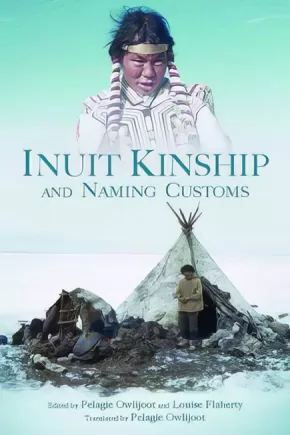
Indigenous Peoples in Canada
511
-
525
of
564 Results;
Sort By
Go To
of 38
Plants Have So Much to Give Us, All We Have to Do Is Ask: Anishinaabe Botanical Teachings
$31.99
Artists:
Editors:
Format:
Paperback
Text Content Territories:
Indigenous Canadian; First Nations; Anishinaabeg;
Reading Level: N/A
ISBN / Barcode: 9780816696765
Synopsis:
Synopsis:
Mary Siisip Geniusz has spent more than thirty years working with, living with, and using the Anishinaabe teachings, recipes, and botanical information she shares in Plants Have So Much to Give Us, All We Have to Do Is Ask. Geniusz gained much of the knowledge she writes about from her years as an oshkaabewis, a traditionally trained apprentice, and as friend to the late Keewaydinoquay, an Anishinaabe medicine woman from the Leelanau Peninsula in Michigan and a scholar, teacher, and practitioner in the field of native ethnobotany. Keewaydinoquay published little in her lifetime, yet Geniusz has carried on her legacy by making this body of knowledge accessible to a broader audience.
Geniusz teaches the ways she was taught—through stories. Sharing the traditional stories she learned at Keewaydinoquay’s side as well as stories from other American Indian traditions and her own experiences, Geniusz brings the plants to life with narratives that explain their uses, meaning, and history. Stories such as “Naanabozho and the Squeaky-Voice Plant” place the plants in cultural context and illustrate the belief in plants as cognizant beings. Covering a wide range of plants, from conifers to cattails to medicinal uses of yarrow, mullein, and dandelion, she explains how we can work with those beings to create food, simple medicines, and practical botanical tools.
Plants Have So Much to Give Us, All We Have to Do Is Ask makes this botanical information useful to native and nonnative healers and educators and places it in the context of the Anishinaabe culture that developed the knowledge and practice.
Additional Information
344 pages | 7.00" x 10.00" | Paperback
Remembering Vancouver's Disappeared Women: Settler Colonialism and the Difficulty of Inheritance
$37.95
Format:
Paperback
Text Content Territories:
Indigenous Canadian;
Grade Levels: University/College;
ISBN / Barcode: 9781442612754
Synopsis:
Synopsis:
Between the late 1970s and the early 2000s, at least sixty-five women, many of them members of Indigenous communities, were found murdered or reported missing from Vancouver’s Downtown Eastside. In a work driven by the urgency of this ongoing crisis, which extends across the country, Amber Dean offers a timely, critical analysis of the public representations, memorials, and activist strategies that brought the story of Vancouver’s disappeared women to the attention of a wider public. Remembering Vancouver’s Disappeared Women traces “what lives on” from the violent loss of so many women from the same neighbourhood.
Dean interrogates representations that aim to humanize the murdered or missing women, asking how these might inadvertently feed into the presumed dehumanization of sex work, Indigeneity, and living in the Downtown Eastside of Vancouver. Taking inspiration from Indigenous women’s research, activism, and art, she challenges readers to reckon with our collective implication in the ongoing violence of settler colonialism and to accept responsibility for addressing its countless injustices.
The Education of Augie Merasty: A Residential School Memoir (HC) (9 in Stock)
$21.95
Format:
Hardcover
Text Content Territories:
Indigenous Canadian; First Nations; Cree (Nehiyawak);
ISBN / Barcode: 9780889773684
Synopsis:
Synopsis:
The Education of Augie Merasty offers a courageous and intimate chronicle of life in a residential school.
Now a retired fisherman and trapper, Joseph A. (Augie) Merasty was one of an estimated 150,000 First Nations, Inuit, and Metis children who were taken from their families and sent to government-funded, church-run schools, where they were subjected to a policy of "aggressive assimiliation."As Merasty recounts, these schools did more than attempt to mold children in the ways of white society. They were taught to be ashamed of their native heritage and, as he experienced, often suffered physical and sexual abuse.Even as he looks back on this painful part of his childhood, Merasty’s generous and authentic voice shines through.
Awards
- 2016 Burt Award Second Place Winner
Reviews
"At 86, Augie Merasty has been a lot of things: Father. Son. Outdoorsman. Homeless. But now he is a first-time author, and the voice of a generation of residential-school survivors.... The Education of Augie Merasty is the tale of a man not only haunted by his past, but haunted by the fundamental need to tell his own story... one of the most important titles to be published this spring." —Globe and Mail
"[Augie] wrote his memoir to show people the unbelievable atrocities suffered by so many Indigenous people and in the hope that others would come forward to tell their stories of what happened in the residential schools." —Eagle Feather News
"This book is so much bigger than its small size. It is a path to healing. We cannot change history, but we can acknowledge it, learn about it, and remember it." —Prairies North
"The Education of Augie Merasty might be a small book, but it carries a punch to it that all Canadian need to read and understand." —Rabble
"A truly extraordinary memoir by a truly extraordinary man." —Midwest Book Review
"Carpenter's introduction and afterword... allow us to come to better understand Augie's 'sometimes chaotic, sometimes heroic aftermath of his life,' as Carpenter describes his last decade. Where Augie focuses on physical scars, Carpenter's experiences with Augie illustrate the long-term impacts on his residential school experience. And with The Education of Augie Merasty, he helps Merasty--who could be any number of individuals we each pass on the street--find his voice." —Active History
"Unsettling and profound, and good." —Blacklock's Reporter
"In this book I have seen horror through eyes of a child." —James Daschuk, author of Clearing the Plains
"A story in which our entire nation has an obscure and dark complicity." —David Carpenter, co-author of The Education of Augie Merasty and author of The Gold and other books
Educator Information
The Canadian Indigenous Books for Schools list recommends this resource for Grades 9-12 English Language Arts and Social Studies.
Caution: Mature subject matter and descriptions of discrimination, sexual/physical violence, and substance abuse.
Additional Information
105 pages | 4.25" x 6.53" | Hardcover
The Land We Are: Artists and Writers Unsettle the Politics of Reconciliation
$24.95
Editors:
Format:
Paperback
Text Content Territories:
Indigenous Canadian;
ISBN / Barcode: 9781894037631
Synopsis:
Synopsis:
The Land We Are is a stunning collection of writing and art that interrogates the current era of reconciliation in Canada. Using visual, poetic, and theoretical language, the contributors approach reconciliation as a problematic narrative about Indigenous-settler relations, but also as a site where conversations about a just future must occur. The result of a four-year collaboration between artists and scholars engaged in resurgence and decolonization, The Land We Are is a moving dialogue that blurs the boundaries between activism, research, and the arts.
The contributors to this book include leading artists and scholars engaged in questions of resurgence, restitution, and decolonization.
Contributors: Jordan Abel, Leah Decter, Jonathan Dewar, David Garneau, Ayumi Goto, Allison Hargreaves, Gabrielle L'Hirondelle Hill, Jaimie Isaac, David Jefferess, Layli Long Soldier, The New BC Indian Art and Welfare Society Collective, Sophie McCall, Peter Morin, Skeena Reece, Dylan Robinson, Sandra Semchuk, Adrian Stimson, Clement Yeh, and Keren Zaiontz.
Reviews
"This beautifully produced, richly illustrated volume not only offers readers a visual journey into the featured artistic installations and performance pieces, but through its creative use of text and graphic design is itself an artistic statement on reconciliation." --Winnipeg Free Press
Educator Information
Recommended for students in grades 11 and 12, as well as at a college/university level.
Additional Information
240 pages | 6.50" x 9.50"
The Reason You Walk
$22.00
Format:
Paperback
Text Content Territories:
Indigenous Canadian; First Nations; Anishinaabeg; Ojibway;
ISBN / Barcode: 9780143193555
Synopsis:
Synopsis:
When his father was given a diagnosis of terminal cancer, Winnipeg broadcaster and musician Wab Kinew decided to spend a year reconnecting with the accomplished but distant aboriginal man who'd raised him. The Reason You Walk spans the year 2012, chronicling painful moments in the past and celebrating renewed hopes and dreams for the future. As Kinew revisits his own childhood in Winnipeg and on a reserve in Northern Ontario, he learns more about his father's traumatic childhood at residential school. An intriguing doubleness marks The Reason You Walk, a reference to an Anishinaabe ceremonial song. Born to an Anishinaabe father and a non-native mother, he has a foot in both cultures. He is a Sundancer, an academic, a former rapper, a hereditary chief, and an urban activist. His father, Tobasonakwut, was both a beloved traditional chief and a respected elected leader who engaged directly with Ottawa. Internally divided, his father embraced both traditional native religion and Catholicism, the religion that was inculcated into him at the residential school where he was physically and sexually abused. In a grand gesture of reconciliation, Kinew's father invited the Roman Catholic bishop of Winnipeg to a Sundance ceremony in which he adopted him as his brother. Kinew writes affectingly of his own struggles in his twenties to find the right path, eventually giving up a self-destructive lifestyle to passionately pursue music and martial arts. From his unique vantage point, he offers an inside view of what it means to be an educated aboriginal living in a country that is just beginning to wake up to its aboriginal history and living presence.
Invoking hope, healing and forgiveness, The Reason You Walk is a poignant story of a towering but damaged father and his son as they embark on a journey to repair their family bond. By turns lighthearted and solemn, Kinew gives us an inspiring vision for family and cross-cultural reconciliation, and a wider conversation about the future of aboriginal peoples.
The Right to Be Cold: One Woman's Story of Protecting Her Culture, the Arctic and the Whole Planet
$22.00
Format:
Paperback
Text Content Territories:
Indigenous Canadian; Inuit;
Grade Levels: 12; University/College;
ISBN / Barcode: 9780143187646
Synopsis:
Synopsis:
One of Canada's most passionate environmental and human rights activists addresses the global threat of climate change from the intimate perspective of her own Arctic childhood.
The Arctic ice is receding each year, but just as irreplaceable is the culture, the wisdom that has allowed the Inuit to thrive in the Far North for so long. And it's not just the Arctic. The whole world is changing in dangerous, unpredictable ways. Sheila Watt-Cloutier has devoted her life to protecting what is threatened and nurturing what has been wounded. In this culmination of Watt-Cloutier's regional, national, and international work over the last twenty-five years, The Right to Be Cold explores the parallels between safeguarding the Arctic and the survival of Inuit culture, of which her own background is such an extraordinary example. This is a human story of resilience, commitment, and survival told from the unique vantage point of an Inuk woman who, in spite of many obstacles, rose from humble beginnings in the Arctic to become one of the most influential and decorated environmental, cultural, and human rights advocates in the world.
Awards
- 2015 Ontario Historical Society Huguenot Society of Canada Award Winner
Reviews
"Loss, suppression and ultimate rediscovery of voice are themes that run through this courageous and revelatory memoir." —Naomi Klein, The Globe and Mail
"This is a book that needs to be read as the North becomes central to our future. It offers a perspective grounded in the culture and wisdom of northern people, seen through the lens of a remarkable woman as they seek to preserve 'The Right to be Cold.'" —Lloyd Axworthy, academic, former Minister of Foreign Affairs, and Nobel Peace Prize nominee
"This is a moving and passionate story from a committed woman who has bridged the ice age to the digital age. Her sophisticated views on the environment and the way the world works from her engaged involvement are brilliant and convincing." —The Right Honourable Adrienne Clarkson, journalist and former Governor General
Educator Information
This resource is also available in French: Le droit au froid: Combat d'une femme pour proteger sa culture, l'Arctique et la planete
Additional Information
|
Tlingit: Their Art and Culture
$12.95
Format:
Paperback
Text Content Territories:
Indigenous American; Alaska Native; Tlingit;
ISBN / Barcode: 9780888395306
Synopsis:
Synopsis:
When you visit southeast Alaska you encounter the Tlingit Indians and their very rich lands, diversified culture and wondrous art forms. You can visit from cruise ships, from the Alaska Ferry system, from private boats, from the air, or by following the highway systems though Hyder, Skagway or Haines.
The richness of the Tlingit culture flows from the incredible diversity and abundance of the surrounding seas: its fish, whales and sea life, the prolific clam beaches, and the incredible wealth from the spawning fish that feed the bears and eagles and nutrify the dense coniferous forest. The ease with which the natives could extract a good living provided much extra time to devote to developing an extraordinarily rich culture and a prolific art, as well as the warring and slave trading that set the northwest coast peoples apart from the other more food-deprived North American native peoples.
This book will give you a glimpse into the richess of their culture and art and afford you some understanding how the Tlingit evolved as part of this productive land.
Unsettling Canada: A National Wake-Up Call
$29.95
Format:
Paperback
Text Content Territories:
Indigenous Canadian;
ISBN / Barcode: 9781771131766
Synopsis:
Synopsis:
Unsettling Canada, a Canadian bestseller, is built on a unique collaboration between two First Nations leaders, Arthur Manuel and Grand Chief Ron Derrickson.
Both men have served as chiefs of their bands in the B.C. interior and both have gone on to establish important national and international reputations. But the differences between them are in many ways even more interesting. Arthur Manuel is one of the most forceful advocates for Aboriginal title and rights in Canada and comes from the activist wing of the movement. Grand Chief Ron Derrickson is one of the most successful Indigenous businessmen in the country.
Together the Secwepemc activist intellectual and the Syilx (Okanagan) businessman bring a fresh perspective and new ideas to Canada’s most glaring piece of unfinished business: the place of Indigenous peoples within the country’s political and economic space. The story is told through Arthur’s voice but he traces both of their individual struggles against the colonialist and often racist structures that have been erected to keep Indigenous peoples in their place in Canada.
In the final chapters and in the Grand Chief’s afterword, they not only set out a plan for a new sustainable indigenous economy, but lay out a roadmap for getting there.
Reviews
“This is the back story of both grassroots and backroom struggles that created the context in which we find ourselves today, one in which a new generation of First Nations leaders is demanding sovereignty and self-determination, and more and more non-Indigenous Canadians finally understand that huge swaths of this country we call Canada is not ours - or our government's - to sell.” — Naomi Klein, from the Foreword
“Pragmatic and helpful, this is a timely book for our fraught and political moment” — Quill & Quire
"Unsettling Canada is a breathtakingly beautiful story of Indigenous resistance, strength, and movement building. Unsettling Canada echoes the power of George Manuel's The Fourth World, centering the heart of the narrative deep inside a kind of Indigenous intelligence rarely shared outside our communities. This is the critical conversation that Canada and Indigenous peoples must have because it is centred on land, and, therefore, it is one of the most important books on Indigenous politics I've ever read." — Leanne Betasamosake Simpson, author of Dancing on Our Turtle's Back
Educator Information
This resource would be useful for courses in history, social justice, political science, and social studies. Recommended for students in grades 10 to 12 or those at a college/university level.
CONTENTS
Foreword Naomi Klein
Chapter 1 The Lay of the Land
Chapter 2 Institutionalizing a People: Indian Hospital, School, Jail
Chapter 3 White Paper to Red Paper: Drawing the Battle Lines
Chapter 4 Occupy Indian Affairs: Native Youth in Action
Chapter 5 Aboriginal Title: No Surrender
Chapter 6 The Constitution Express: A Grassroots Movement
Chapter 7 Don’t Let Them Bully You: A Business Interlude
Chapter 8 A Chief’s Concerns: Finances, the People, and the Land
Chapter 9 Upping the Ante: RCAP and a Landmark Court Decision
Chapter 10 The Battle in the Forest: The Trade in Indian Trees
Chapter 11 Sun Peaks to Geneva: Playgrounds and Fortresses
Chapter 12 Taking It to the Bank: Accounting for Unpaid Debt
Chapter 13 The Fourth World: A Global Movement
Chapter 14 Line of Defence: Side by Side for Mother Earth
Chapter 15 No Half Measures: The Price of Uncertainty
Chapter 16 Days of Protest: Young Activists Come Together
Chapter 17 The End of Colonialism
Afterword Grand Chief Ronald M. Derrickson
Acknowledgements
Appendix United Nations Declaration on the Rights of Indigenous Peoples
Notes
Index
Additional Information
288 pages | 6.00" x 9.00"
Unsettling Canada: A National Wake-Up Call - Second Edition
$29.95
Format:
Paperback
Text Content Territories:
Indigenous Canadian;
ISBN / Barcode: 9781771135566
Synopsis:
Synopsis:
A Canadian bestseller and winner of the 2016 Canadian Historical Association Aboriginal History Book Prize, Unsettling Canada is a landmark text built on a unique collaboration between two First Nations leaders.
Arthur Manuel (1951-2017) was one of the most forceful advocates for Indigenous title and rights in Canada; Grand Chief Ron Derrickson, one of the most successful Indigenous businessmen in the country. Together, they bring a fresh perspective and bold new ideas to Canada's most glaring piece of unfinished business: the place of Indigenous peoples within the country's political and economic space.
This vital second edition features a foreword by award-winning activist Naomi Klein and an all-new chapter co-authored by law professor Nicole Schabus and Manuel's son, Ska7cis, honouring the multi-generational legacy of the Manuel family's work.
Reviews
“Pragmatic and helpful, this is a timely book for our fraught and political moment” — Quill & Quire
"Unsettling Canada is a breathtakingly beautiful story of Indigenous resistance, strength, and movement building. Unsettling Canada echoes the power of George Manuel's The Fourth World, centering the heart of the narrative deep inside a kind of Indigenous intelligence rarely shared outside our communities. This is the critical conversation that Canada and Indigenous peoples must have because it is centred on land, and, therefore, it is one of the most important books on Indigenous politics I've ever read." — Leanne Betasamosake Simpson, author of Dancing on Our Turtle's Back
Educator Information
This resource would be useful for courses in history, social justice, political science, and social studies. Recommended for students in grades 10 to 12 or those at a college/university level.
Additional Information
320 pages | 6.00" x 9.00"
Decolonizing Trauma Work: Indigenous Stories and Strategies
$27.00
Format:
Paperback
Text Content Territories:
Indigenous Canadian;
Reading Level: N/A
ISBN / Barcode: 9781552666586
Synopsis:
Synopsis:
In Decolonizing Trauma Work, Renee Linklater explores healing and wellness in Indigenous communities on Turtle Island. Drawing on a decolonizing approach, which puts the “soul wound” of colonialism at the centre, Linklater engages ten Indigenous health care practitioners in a dialogue regarding Indigenous notions of wellness and wholistic health, critiques of psychiatry and psychiatric diagnoses, and Indigenous approaches to helping people through trauma, depression and experiences of parallel and multiple realities. Through stories and strategies that are grounded in Indigenous worldviews and embedded with cultural knowledge, Linklater offers purposeful and practical methods to help individuals and communities that have experienced trauma. Decolonizing Trauma Work, one of the first books of its kind, is a resource for education and training programs, health care practitioners, healing centres, clinical services and policy initiatives.
Additional Information
176 pages | 6.00" x 9.00" | Paperback
End-of-Earth People: The Arctic Sahtu Dene
$35.00
Format:
Paperback
Text Content Territories:
Indigenous Canadian; First Nations; Dene; North Slavey (Sahtu);
ISBN / Barcode: 9781459722675
Synopsis:
Synopsis:
Bern Will Brown, noted northern author, artist, photographer, and respected community leader living in Colville Lake, Northwest Territories, provides new insights and perspectives on the Sahtu Dene, the people referred to as the "Hareskin" in Alexander Mackenzie's 1793 journal. Having lived among them for over sixty years and as a speaker of their dialect, Brown is well positioned to provide an adventure in history and culture rooted in the Hareskin traditional way of life.
End-of-Earth People, his latest contribution and a valuable record of the North, is a portrait of a people Brown has come to know in ways that anthropologists and ethnologists can only envy.
English-Cayuga/Cayuga-English Dictionary
$81.00
Format:
Paperback
Text Content Territories:
Indigenous Canadian; First Nations; Haudenosaunee (Iroquois); Cayuga;
Reading Level: N/A
ISBN / Barcode: 9781442627093
Synopsis:
Synopsis:
The first comprehensive lexicographic work on Cayuga, an Iroquoian language spoken in southern Ontario at Six Nations of the Grand River, this dictionary, combines the work of Dyck, a professor of linguistics, and Froman, Keye, and Keye, all Cayuga language teachers at Six Nations. It contains over 3000 entries, including 1000 verb forms and many nouns never before printed; extensive cross-referencing, thematic appendices that highlight cultural references and provide 1600 further entries, and a short grammatical sketch complete this accomplished work.
Entries in the main dictionary are organized by bases, which will make the dictionary especially helpful to those learning Cayuga as a second language. The dictionary's accuracy and extensiveness will make it an indispensable reference not only to the Cayuga speaker and student, but also to other Iroquoian speakers, linguists, anthropologists, and historians of Indigenous Peoples.
Produced under the auspices of the Sweetgrass First Nations Language Council Inc.
Reviews
"The first extensive dictionary of Cayuga, this benchmark work documents the language in 3,000 entries and in word lists organized thematically in appendixes ... A valuable tool for linguists of Iroquoian languages and anthropologists, as well as those who study the Cayuga language. Summing up: Highly recommended."— R. Hanson, Choice
"A major milestone in Iroquoian studies and an extremely important tool in the preservation of the Cayuga language."— Blair A. Rudes, Department of English, University of North Carolina at Charlotte
Additional Information
786 pages | 6.88" x 9.73" | Paperback
Indigenous Healing: Exploring Traditional Paths
$24.00
Format:
Paperback
Text Content Territories:
Indigenous Canadian;
Reading Level: N/A
ISBN / Barcode: 9780143191100
Synopsis:
Synopsis:
Imagine a world in which people see themselves as embedded in the natural order, with ethical responsibilities not only toward each other, but also toward rocks, trees, water and all nature. Imagine seeing yourself not as a master of Creation, but as the most humble, dependent and vulnerable part.
Rupert Ross explores this indigenous world view and the determination of indigenous thinkers to restore it to full prominence today. He comes to understand that an appreciation of this perspective is vital to understanding the destructive forces of colonization. As a former Crown Attorney in northern Ontario, Ross witnessed many of these forces. He examines them here with a special focus on residential schools and their power to destabilize entire communities long after the last school has closed. With help from many indigenous authors, he explores their emerging conviction that healing is now better described as “decolonization therapy.” And the key to healing, they assert, is a return to the traditional indigenous world view.
The author of two previous bestsellers on indigenous themes, Dancing with a Ghost and Returning to the Teachings, Ross shares his continuing personal journey into traditional understanding with all of the confusion, delight and exhilaration of learning to see the world in a different way.
Ross sees the beginning of a vibrant future for indigenous people across Canada as they begin to restore their own definition of a “healthy person” and bring that indigenous wellness into being once again. Indigenous Healing is a hopeful book, not only for indigenous people, but for all others open to accepting some of their ancient lessons about who we might choose to be.
Additional Information
344 pages | 5.25" x 8.20" | Paperback
Indivisible: Indigenous Human Rights
$32.00
Editors:
Format:
Paperback
Text Content Territories:
Indigenous;
Grade Levels: University/College;
ISBN / Barcode: 9781552666838
Synopsis:
Synopsis:
Indigenous rights are generally conceptualized and advocated separately from the human rights framework. The contributors to Indivisible: Indigenous Human Rights, however, deftly and powerfully argue that Indigenous rights are in fact human rights and that the fundamental human rights of Indigenous people cannot be protected without the inclusion of their Indigenous rights, which are suppressed and oppressed by the forces of racism and colonialism. Drawing on a wealth of experience and blending critical theoretical frameworks and a close knowledge of domestic and international law on human rights, the authors in this collection show that settler states such as Canada persist in violating and failing to acknowledge Indigenous human rights. Furthermore, settler states are obligated to respect and animate these rights, despite the evident tensions in political and economic interests between elite capitalists, settler citizens and Indigenous peoples.
Reviews
“The historic and contemporary challenges faced by Indigenous peoples, be it the tragedy of residential schools, high levels of violence against women, abusive policing, struggles around land and resources, or entrenched poverty are reflective of the disgraceful failure of Canada and other states to uphold human rights. Indivisible is a critical call to governments and Indigenous peoples to take up the indivisible framework of rights protection enshrined in the UN Declaration of the Rights of Indigenous Peoples.” — Alex Neve, Amnesty International
“Well written, fast moving, and well researched, this is book is a rich, smart resource for anyone wanting to break down and understand the human rights versus indigenous rights debate, and to move on to more productive conversations about real political and legal change for indigenous peoples.” — Val Napoleon, University of Victoria
“Have you ever looked back at a point in your life when, had good advice been taken, it would have meant a much better future? This book offers that advice, now. Canadians who want to live well because Indigenous peoples prosper need to read Indivisible.” — Robert Lovelace, Retired Chief of Ardoch Algonquin First Nation, professor of global studies, Queen’s University
Educator Information
Table of Contents
Indigenous Human Rights are Indivisible (Joyce Green)
THEORETICAL AND POLITICAL CONTEXT FOR INDIGENOUS HUMAN RIGHTS
Denying Indigenous Human Rights: Colonialism and Rights Discourse in Canada (Joyce Green)
Two The Race Bind: Denying Aboriginal Rights in Australia (Maggie Walter)
Colonialism Past and Present: Indigenous Human Rights and Canadian Policing (Elizabeth Comack)
Indigenous Human Rights and Decolonization (Andrea Smith)
ABORIGINAL HUMAN RIGHTS — SPECIFIC THEMES
McIvor v. Canada: Legislated Patriarchy Meets Aboriginal Women’s Equality Rights (Gwen Brodsky)
Confronting Violence: Indigenous Women. Self-Determination and International Human Rights (Rauna Kuokkanen)
Victoria’s Secret: How to Make a Population of Prey (Mary Eberts)
INTERNATIONAL AND DOMESTIC CONSTITUTIONAL LAW and INDIGENOUS HUMAN RIGHTS
Free, Prior and Informed Consent: Defending Indigenous Rights in the Global Rush for Resources (Craig Benjamin)
The Presumption of Conformity: International Indigenous Human Rights and the Canadian Constitution (Brenda Gunn)
Undermining Indigenous Peoples’ Security and Human Rights (Paul Joffe)
Additional Information
240 pages | 6.00" x 9.00"
Inuit Kinship and Naming Customs (1 in stock, in reprint)
$19.95
Format:
Paperback
Text Content Territories:
Indigenous Canadian; Inuit;
ISBN / Barcode: 9781927095713
Synopsis:
Synopsis:
Traditionally, Inuit do not call each other by their given names. Instead, they refer to each other using a system of kinship and family terms, known as tuqurausiit (turk-thlo-raw-seet). Calling each other by kinship terms is a way to show respect and foster closeness within families. Children were named after their elders and ancestors, ensuring a long and healthy life.
As more and more Inuit refer to each other by their English first names, rather than their traditional kinship terms, the tradition of tuqurausiit is slowly disappearing. This book presents interviews with four Inuit elders from Baffin Region, Nunavut, about how names were chosen, the importance of using kinship terms, and how the practice of tuqurausiit has changed over the years. Inuit Kinship and Naming Customs helps to preserve the knowledge of this tradition for younger generations, both Inuit and non-Inuit.
Additional Information
|
Sort By
Go To
of 38

